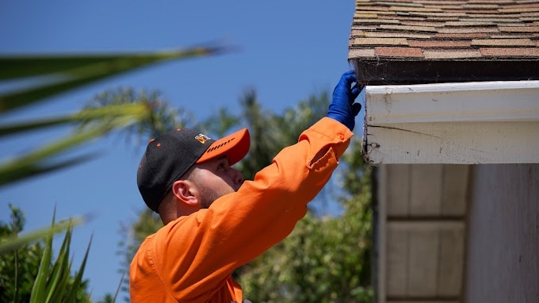Dr. Termites
Summer is the busiest season for pest activity. With warmer temperatures and longer days, pests like termites, ants, roaches, spiders, bed bugs, fleas, and ticks become more active and aggressive in their search for food, moisture, and shelter. Without proper seasonal pest control, your home can quickly become a target for infestations that are difficult and costly to reverse.
Understanding the patterns and behaviors of these common summer pests is the first step to protecting your home. With timely preventive action and expert guidance, you can enjoy a pest-free summer season.

Why Summer Pests Are So Active
Pests thrive in warm, humid conditions, making summer their ideal season. Many insects accelerate their reproductive cycles during this time, and the increased outdoor activity of people and pets provides more opportunities for pests to enter homes.
Here’s why summer pest issues escalate:
- Moisture and humidity from rain and watering create ideal conditions for breeding and survival
- Higher temperatures speed up insect metabolism and reproduction, making populations grow faster
- More food sources appear both inside and outside the home, attracting foragers like ants and roaches
- Increased travel and activity bring bed bugs and fleas into homes through luggage, shoes, and pets
Without proper safeguards in place, these factors can quickly lead to infestations. The goal of summer pest control is to block these entry points and remove conditions that attract pests in the first place.
The Most Common Summer Pest Threats
Each pest presents its own unique challenge during summer. Some cause structural damage, while others create serious health concerns. Knowing what to watch for can help you act before a full-blown infestation develops.
- Termites: Subterranean termites are most active in warm months. Swarms searching for new colony locations may target damp or exposed wood around your home
- Ants: Summer is the peak season for ant invasions. They often enter homes looking for food and water, setting up colonies behind walls or under floors
- Roaches: Roaches thrive in heat and humidity. Kitchens, bathrooms, and laundry areas are common entry points, especially where water is present
- Spiders: These predators follow other insects indoors. While many are harmless, some spiders bite and often prefer secluded corners or basements
- Bed bugs: Travel spikes during summer, increasing the risk of bed bugs hitching a ride in suitcases or clothing
- Fleas and ticks: Warmer weather fuels their reproductive cycle. Pets can bring them indoors, and infestations can spread quickly in carpeting or upholstery
Each of these pests has its own behavior pattern, so successful control requires a multi-layered, pest-specific approach.
Preventive Steps to Take Now
Preventing summer pest infestations starts with making your home less appealing to insects and more resistant to their entry. Target the areas pests rely on most: moisture, food, access points, and clutter.
Here are effective prevention tips:
- Seal entry points such as cracks in walls, window frames, door thresholds, and around utility lines
- Fix water leaks under sinks, in basements, and around outdoor spigots to limit moisture
- Keep food sealed and surfaces clean in kitchens, especially during high-traffic summer days
- Trim vegetation and trees away from exterior walls to reduce insect access
- Regularly vacuum and wash bedding, rugs, and pet areas to reduce flea and bed bug risks
- Declutter unused rooms, garages, and basements, removing hiding places for spiders and ants
Taking these steps before the season peaks gives you the best chance of avoiding infestations altogether. For more in-depth strategies, explore why preventive measures are key when it comes to managing pests long-term.
Eco-Friendly Solutions for Summer Control
With growing concerns over chemical exposure, many homeowners are turning to eco-friendly solutions for pest control. These treatments can be just as effective when applied professionally and consistently.
Some of the most promising natural strategies include:
- Orange oil treatments for termites, which penetrate wood and kill insects without harmful residues
- Essential oil sprays, like peppermint or citru,s to deter ants and spiders from entry points
- Diatomaceous earth applied in cracks and crevices to dehydrate roaches, fleas, and ticks
- High-efficiency vacuums and steam treatments to target bed bugs and their eggs without chemicals
When combined with inspection and monitoring, eco-friendly methods can deliver long-term results without compromising your household’s safety. If you’re interested in natural termite solutions, learn more about the benefits of orange oil and how it works as an effective alternative to traditional treatments.
When to Call in the Experts
Even with preventive steps in place, summer pests can find a way in. Some infestations, especially termites or bed bugs, are difficult to detect until damage is already done. In these cases, professional inspection and treatment are crucial.
You may need professional help if you notice:
- Persistent ant trails or roaches, especially after cleaning
- Discarded termite wings or mud tubes near wood structures
- Bed bug bites or staining on linens and mattresses
- Pets scratching excessively, which may indicate fleas or ticks indoors
- Spider webs or insect sightings in multiple areas of the home
Trained technicians can identify pest types, locate nests, and apply targeted treatments that go beyond surface symptoms. They also provide follow-up care to ensure pests are fully eliminated and kept from returning.
Stay Ahead of the Summer Surge
Summer pests are active, fast-breeding, and often hard to eliminate without a plan. Preparing your home with proactive steps and professional guidance helps keep your living space comfortable, clean, and safe throughout the season.
For a seasonal pest control plan tailored to your home and summer conditions, contact Dr. Termites and take the first step toward a pest-free summer.
The post Seasonal Pest Control: Preparing Your Home for Summer Pests appeared first on Dr. Termites.

